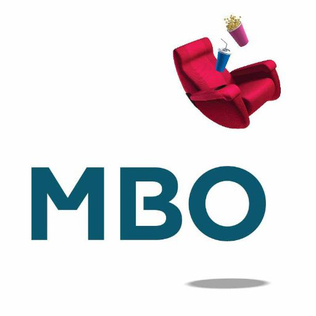LBO and MBO: Although LBO and MBO might seem like a strange combination, they are used in the business world. MBO stands for a management buyout. LBO, on the other hand, is leveraged buyout. Many people believe that MBO and LBO are completely different. However, many experts agree that MBO can be viewed as a variant of LBO where internal management takes over the effective control of a company. The purpose of this article is to clarify the differences between LBO, and MBO.
What is LBO?

A leveraged buyout is when an external party, usually a person with an interest in controlling the company, raises enough money to purchase sufficient shares of that company so as to have control of equity. This investor usually borrows money at a high rate of interest, which is then repaid by the sale of assets from the company acquired. The funds are usually provided by banks or debt capital markets.
LBOs have been used by people who had no money or little to no at all but still managed to gain control of a business. It is shocking that assets from the acquired company are being used to secure the loan. The acquiring company will issue bonds that have a high risk and are not investment grade. This is because the process involves substantial risks. The debt component of LBOs ranges between 50 and 85%, though some LBOs have had debt amounts exceeding 95%.
What is the LBO Process?
A private equity company will buy a business using both debt and equity in an LBO. Debt is usually in the form of high-yielding bonds or bank loans. Private equity firms and their investors provide the equity. The acquired company will be responsible for paying back the debt once the deal is completed.
What is MBO?

MBO stands for Management Buyout, which is another type of LBO. In this case, the management within the firm is trying to take control of the business instead of an outsider. It is done to increase the interest of managers in the business, as they are now equity owners and share in the profits. A publicly traded company is taken private when MBO takes place. MBO has a significant impact on the restructuring of an organization, as well as acquisitions and fusions.
Some people say managers are using MBO to purchase companies at lower prices and make changes that increase the share price to gain a large amount of profit. Supporters of this opinion claim that managers mismanage the company to reduce output, and therefore stock prices. They govern their company efficiently after a successful MBO, where they gained control for a low price. This causes the stock prices to rise quickly.
What is MBO?
Typically, in an MBO the management team purchases the company with a mix of its own money, bank loans, and external investors. After the acquisition, management will own and operate the company.
What is the difference between LBO and MBO?
Who is buying is the main difference between LBOs and MBOs. A private equity company purchases the business in an LBO. Management buys the company in an MBO. The way the company is structured and financed will be affected by this.
- Financing Differences
A large part of an LBO is funded by debt. An MBO is typically financed by the management team using their own money and external financing. LBOs tend to be larger than MBOs.
- Differential Control
Private equity firms control the company in an LBO. Most often, they will install their management team in the company and change its operations to boost its value. The existing management is still in charge of the business after an MBO. The company will be run in the same way as before.
- Risk Differences
LBOs, due to the high amount of debt that was used to fund the acquisition, are considered more risky than MBOs. The company could default if it does not have enough cash to pay its debt. It could result in bankruptcy and a loss of value to the private equity company and investors. MBOs tend to be a lower risk because management teams are invested in the company’s success.
Advantages and disadvantages of LBO and MBO
Benefits and advantages of LBO:
- One of the biggest advantages of LBOs is that they can offer high returns. Private equity firms can increase their returns by using debt financing to fund the acquisition. Private equity firms can make a good return on their investment if the company they have acquired performs well.
- An LBO has the advantage of flexibility when it comes to deal structures. Private equity firms do not have to adhere to the same rules as public companies and can therefore structure their deal the way they see fit. It can be done by using various types of financial instruments, such as debt and equity.
- LBOs also encourage efficiency. Private equity firms are driven to increase the performance of acquired companies because they have a large amount of debt that needs to be paid off. Cost-cutting, streamlining operations, and other measures to increase efficiency can be taken.
LBO has its disadvantages
- LBOs are associated with a high risk. This is one of their main drawbacks. Leverage is high because the private equity company is utilizing a large amount of debt in order to fund the acquisition. Private equity firms could suffer significant losses if the company they have acquired does not meet expectations.
- Limitation of Exit Options Another disadvantage to LBOs are the restricted exit options. Private equity firms may have to keep the company they acquired for longer than desired because they are required to repay a large amount of debt. It can also limit the ability of private equity firms to realize returns on their investments.
- LBOs may also lead to conflict between the management of the company acquired and the private equity firm. Private equity firms are focused on maximising returns and may encourage cost-cutting and other measures that do not serve the long-term success and growth of an acquired company. It can cause tension between both parties
Advantages and disadvantages of MBO:
- MBOs are no different from LBOs in that they have both advantages and disadvantages
MBO: Its advantages
- Most management teams have a high motivation to succeed.
- The existing company culture can be maintained.
- It can be an effective way for management teams to purchase a business
MBO: Its advantages and disadvantages
- The management team may lack the capital necessary to purchase the company
- The size of an acquisition may be limited by the lack of external funding
- Owners may be reluctant to sell their business to a management team
Conclusion
LBOs and MBOs represent two distinct types of acquisitions. LBOs tend to be larger, and therefore more risky. MBOs on the other hand are smaller and less risky. If you are interested in finance or management, it is important to understand the difference between LBOs.